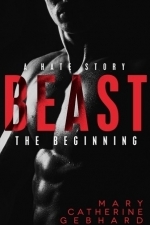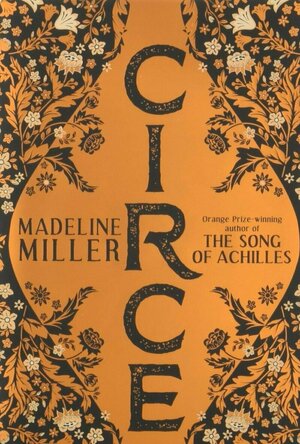Search
Search results

Forum Runner - vBulletin, phpBB, XenForo, and myBB Forum Reader
Social Networking and Utilities
App
★ Forum Runner is in the Top 5 Social Networking apps for iPhone and iPad ★ ★...

DoorDash - Food Delivery
Food & Drink and Lifestyle
App
Food delivery to your door from the widest selection of restaurants near you. Browse more than...
Kristy H (1252 KP) rated Enola Holmes and the Black Barouche in Books
Sep 2, 2021
I am excited to present my first guest review, from my wonderful wife, Kate! Thanks, babe, for your review of this book, the seventh in Nancy Springer's Enola Holmes' series.
When I heard there was going to be another book in the Enola Holmes series, I jumped at the chance and promised my book-loving wife that I would write a guest review. So, here it is! Please accept my apologies ahead of time for the fact that I cannot (and would never dare try to) match the quality and skill that my wife demonstrates in her own book reviews.
Enola Holmes and the Black Barouche, by Nancy Springer, is another book in the growing series following Ms. Enola Holmes, the 15 year old sister of the famous Sherlock Holmes. This book is being released over 10 years after the last published novel, which came out in 2010. The earlier six novels covered the ongoing story of Enola’s (often contentious) relationship with her brothers (Sherlock and Mycroft), as well as brought the reader resolution about Enola’s missing/runaway mother. This new story starts with a Prologue written by none other than Sherlock himself, who provides a summary of these tales, and tells of his earlier encounters with Enola. His introduction even suggests his level of respect for her has improved dramatically. The new story finds the young detective (or Scientific Perditorian, as she has dubbed herself) seeking the whereabouts of Miss Leticia Glover’s twin sister, Flossie. Glover has been told that her sister has died, but the circumstances surrounding Flossie’s death are mysteriously vague. Initially, Glover seeks the assistance of Mr. Sherlock Holmes, but she ends up with the masterful pair of Enola and Sherlock, who are finally working together on a case. The two detectives set out, albeit in opposite directions, to ascertain the fate of the missing twin.
I think the allure of these books for me is the underlying message that Enola is as good as, if not better (or at least cleverer) than her notorious older brother. In the previous stories I enjoyed her ability to reach conclusions before him, even if she was getting there with only a slight edge. This particular story seamlessly continues the message that Enola’s keen mind works in ways that Sherlock’s doesn’t.
I thoroughly enjoyed this seventh book in the Enola Holmes series and hope that the author continues with her story. And, while I do enjoy that Enola and Sherlock have mended their relationship and are able to work together, I hope Enola can still find time to shine on her own. This particular book began with a Prologue from Sherlock, and ended with an Epilogue also penned from his perspective. As these stories are supposed to be Enola’s, it felt wrong for the final word to be coming from someone else. Beyond that, this was an excellent mystery and fun, quick read.
When I heard there was going to be another book in the Enola Holmes series, I jumped at the chance and promised my book-loving wife that I would write a guest review. So, here it is! Please accept my apologies ahead of time for the fact that I cannot (and would never dare try to) match the quality and skill that my wife demonstrates in her own book reviews.
Enola Holmes and the Black Barouche, by Nancy Springer, is another book in the growing series following Ms. Enola Holmes, the 15 year old sister of the famous Sherlock Holmes. This book is being released over 10 years after the last published novel, which came out in 2010. The earlier six novels covered the ongoing story of Enola’s (often contentious) relationship with her brothers (Sherlock and Mycroft), as well as brought the reader resolution about Enola’s missing/runaway mother. This new story starts with a Prologue written by none other than Sherlock himself, who provides a summary of these tales, and tells of his earlier encounters with Enola. His introduction even suggests his level of respect for her has improved dramatically. The new story finds the young detective (or Scientific Perditorian, as she has dubbed herself) seeking the whereabouts of Miss Leticia Glover’s twin sister, Flossie. Glover has been told that her sister has died, but the circumstances surrounding Flossie’s death are mysteriously vague. Initially, Glover seeks the assistance of Mr. Sherlock Holmes, but she ends up with the masterful pair of Enola and Sherlock, who are finally working together on a case. The two detectives set out, albeit in opposite directions, to ascertain the fate of the missing twin.
I think the allure of these books for me is the underlying message that Enola is as good as, if not better (or at least cleverer) than her notorious older brother. In the previous stories I enjoyed her ability to reach conclusions before him, even if she was getting there with only a slight edge. This particular story seamlessly continues the message that Enola’s keen mind works in ways that Sherlock’s doesn’t.
I thoroughly enjoyed this seventh book in the Enola Holmes series and hope that the author continues with her story. And, while I do enjoy that Enola and Sherlock have mended their relationship and are able to work together, I hope Enola can still find time to shine on her own. This particular book began with a Prologue from Sherlock, and ended with an Epilogue also penned from his perspective. As these stories are supposed to be Enola’s, it felt wrong for the final word to be coming from someone else. Beyond that, this was an excellent mystery and fun, quick read.
Ivana A. | Diary of Difference (1171 KP) rated Romanov in Books
Oct 5, 2020
From the author of Fawkes comes a magical take on the story of Anastasia Romanov.
The history books say I died.
They don’t know the half of it.
Ever since I read Fawkes, I knew I loved Nadine’s writing, and when Romanov was announced, I couldn’t be happier. As I have spend my childhood and young adult life in the Balkans, whilst travelling across Europe, I have always admired Russia, and always enjoyed reading all the theories about the Romanov family.
As a child I would be told stories and fairy tales, I would watch the Disney adaptation of Anastasia, and as I was growing up, I would read history books and fiction on this very subject. When I got my hands on ‘’Romanov’’, I knew I would be up for an adventure, with lots of expectations, but what I never knew was that I would be blown away of how beautiful this book is!
This book is split into two main parts, before and after the Romanov’s execution, but it is also split into the first being the historical part, and the second being the fictional part. Both parts of the book are quite intense, and very different emotions come up to surface, but they are both very powerful throughout, and fitted together quite well.
In the first part, we are introduced to the Romanov family, and how they are kept as hostages by the Bolsheviks. It would’ve been much better if we had more details on the pre-hostage period, why the revolution began, why the king abducted the throne, who are the Bolsheviks and what they believed in. The book starts in the middle of this whole situation, and whilst I knew the beginning before, I am certain a lot of people wouldn’t have.
The history, as much accurate as it was, also had a personalized feeling that the author wanted to give. I have to admit, a lot of the details, especially around the family were quite accurate. The family did stick together and loved each other, they did have secrets and they did make friends with their captors. Anastasia’s brother did indeed had hemophilia and Rasputin was allegedly helping him. However, the author decided to put her personal feelings into the history as well. The king is presented as a wonderful leader that cares about the people. I understand that we see this story from Anastasia’s point of view, and as his daughter, she is supposed to see her father as the best figure in the world. But I still believe this part should be more objective, if not from Anastasia’s point of view, then at least by the king’s actions and dialogues. The other big element that bothered me was the portrayal of Rasputin. He is shown in this book as a family helper and a kind man, when in fact, he was far from that. In the history books, he is described as a madman, a creepy person, and the king was not happy of him coming in the house. The family’s secrecy and the queen’s silent domination over the king, together with Rasputin’s doings were the start of the revolution, and I believe that it one of the required truths that this books should have included, but didn’t. And that troubled me.
On top of this, is the Russian language used throughout this book. There were a lot of spelling errors, and misinterpretations. And whilst I can understand these words, many people can’t, and translation wasn’t provided in the book. Also, I really found this quote interesting, talking about the Russian culture, and how they don’t show emotions. Just a note – this is most of the time true, people won’t be nice to strangers, but actually, Russian people are quite friendly and emotional as well.
‘’We Russians weren’t required to share any amount of emotion we didn’t want to.’’
Apart from these few things that slightly bothered me, I really enjoyed this book. Anastasia is an amazing character, and through her we can see her love towards her family, her country, and even towards the people that wish her harm. We get to see her love, cry, be hurt, be afraid, forgive, and grow throughout the book, and her journey was magical.
‘’As I lay in the grass next to the spell that could rid me of heart pain, I realized that a part of forgiveness was accepting the things someone had done – and the pain that came with that – and moving on with love. Forgiveness was a personal battle that must always be fought in my heart.’’
I loved the beginning of the book the most. The setting was well-written, and I got the feel the same way as the Romanov family did. They tried to act as if everything was normal, when in fact, they were held captive, and moved out of their home. They weren’t allowed to go out in the garden often, and when they did have this opportunity, they enjoyed every single second of it. And they all had hope every single day. They kept smiling and stayed together.
There are number of scenes that will always stay close to my heart – the relationship between Zash and Anastasia (as unrealistic as it might be), always kept me on my toes, his desperation, and his guilt, and her ability to forgive and love regardless.
The brother’s illness, and his persistence through it. His motivation and his will to never give up. The love he holds for his family, and especially his sister Anastasia, and the toughness and not letting go. A few scenes were unrealistic with him, as I hardly believe anyone suffering from hemophilia can survive all those injuries mentioned in the book and the pools of blood, but above all – this character did achieve what he was meant to do – show hope where there is none.
A wonderful and magical tale, with a history behind it of a mysterious family, especially their end – this book brought tears on my eyes and made me think about the power of forgiveness and love. A true masterpiece.
Thank you to Nadine Brandes, for letting me be a part of her Ninja Team.
The history books say I died.
They don’t know the half of it.
Ever since I read Fawkes, I knew I loved Nadine’s writing, and when Romanov was announced, I couldn’t be happier. As I have spend my childhood and young adult life in the Balkans, whilst travelling across Europe, I have always admired Russia, and always enjoyed reading all the theories about the Romanov family.
As a child I would be told stories and fairy tales, I would watch the Disney adaptation of Anastasia, and as I was growing up, I would read history books and fiction on this very subject. When I got my hands on ‘’Romanov’’, I knew I would be up for an adventure, with lots of expectations, but what I never knew was that I would be blown away of how beautiful this book is!
This book is split into two main parts, before and after the Romanov’s execution, but it is also split into the first being the historical part, and the second being the fictional part. Both parts of the book are quite intense, and very different emotions come up to surface, but they are both very powerful throughout, and fitted together quite well.
In the first part, we are introduced to the Romanov family, and how they are kept as hostages by the Bolsheviks. It would’ve been much better if we had more details on the pre-hostage period, why the revolution began, why the king abducted the throne, who are the Bolsheviks and what they believed in. The book starts in the middle of this whole situation, and whilst I knew the beginning before, I am certain a lot of people wouldn’t have.
The history, as much accurate as it was, also had a personalized feeling that the author wanted to give. I have to admit, a lot of the details, especially around the family were quite accurate. The family did stick together and loved each other, they did have secrets and they did make friends with their captors. Anastasia’s brother did indeed had hemophilia and Rasputin was allegedly helping him. However, the author decided to put her personal feelings into the history as well. The king is presented as a wonderful leader that cares about the people. I understand that we see this story from Anastasia’s point of view, and as his daughter, she is supposed to see her father as the best figure in the world. But I still believe this part should be more objective, if not from Anastasia’s point of view, then at least by the king’s actions and dialogues. The other big element that bothered me was the portrayal of Rasputin. He is shown in this book as a family helper and a kind man, when in fact, he was far from that. In the history books, he is described as a madman, a creepy person, and the king was not happy of him coming in the house. The family’s secrecy and the queen’s silent domination over the king, together with Rasputin’s doings were the start of the revolution, and I believe that it one of the required truths that this books should have included, but didn’t. And that troubled me.
On top of this, is the Russian language used throughout this book. There were a lot of spelling errors, and misinterpretations. And whilst I can understand these words, many people can’t, and translation wasn’t provided in the book. Also, I really found this quote interesting, talking about the Russian culture, and how they don’t show emotions. Just a note – this is most of the time true, people won’t be nice to strangers, but actually, Russian people are quite friendly and emotional as well.
‘’We Russians weren’t required to share any amount of emotion we didn’t want to.’’
Apart from these few things that slightly bothered me, I really enjoyed this book. Anastasia is an amazing character, and through her we can see her love towards her family, her country, and even towards the people that wish her harm. We get to see her love, cry, be hurt, be afraid, forgive, and grow throughout the book, and her journey was magical.
‘’As I lay in the grass next to the spell that could rid me of heart pain, I realized that a part of forgiveness was accepting the things someone had done – and the pain that came with that – and moving on with love. Forgiveness was a personal battle that must always be fought in my heart.’’
I loved the beginning of the book the most. The setting was well-written, and I got the feel the same way as the Romanov family did. They tried to act as if everything was normal, when in fact, they were held captive, and moved out of their home. They weren’t allowed to go out in the garden often, and when they did have this opportunity, they enjoyed every single second of it. And they all had hope every single day. They kept smiling and stayed together.
There are number of scenes that will always stay close to my heart – the relationship between Zash and Anastasia (as unrealistic as it might be), always kept me on my toes, his desperation, and his guilt, and her ability to forgive and love regardless.
The brother’s illness, and his persistence through it. His motivation and his will to never give up. The love he holds for his family, and especially his sister Anastasia, and the toughness and not letting go. A few scenes were unrealistic with him, as I hardly believe anyone suffering from hemophilia can survive all those injuries mentioned in the book and the pools of blood, but above all – this character did achieve what he was meant to do – show hope where there is none.
A wonderful and magical tale, with a history behind it of a mysterious family, especially their end – this book brought tears on my eyes and made me think about the power of forgiveness and love. A true masterpiece.
Thank you to Nadine Brandes, for letting me be a part of her Ninja Team.
Connor Sheffield (293 KP) rated Rogue One: A Star Wars Story (2016) in Movies
Apr 18, 2017
New, yet Nostalgic
So whenever I hear that there's going to be a new Star Wars Movie, I get so excited EVERY TIME! However, that's not to say that I don't always feel nervous about this next one could be "The Bad Star Wars Film" because whilst I can find some good aspects of the prequel trilogy (SOME! Not a lot but there is some) I don't enjoy them and prefer to ignore them when having a Star Wars Movie marathon.
So when I heard that there's this film being made that's not and 'episode' but will have some connections to the original trilogy, I was nervous that it might blow some of the lore out the window and try and make their own lore that doesn't fit in with the prequels or the sequels. On the other hand I was so excited to feel that I was getting to see new characters and more of the lore on film such as Kyber Crystals and Jedha itself.
The characters were incredible in my opinion! Felicity Jones portrayed Jyn Erso, and really brought the strong female lead to a new generation of Star Wars fans and film fans in general. Jyn Erso is the Princess Leia of this new generation and honestly she had quite a lot to live up to following Daisy Ridley's portrayal as the strong female lead character, Rey, in Star Wars: The Force Awakens. Long story short, Felicity Jones nailed it! She's strong, independent but also has a lot of history and emotion that we don't get to see a lot of.
Then there's characters like K-2SO who is hilarious in my opinion and Alan Tudyk really brought a droid to life and made him feel more human, but also 'too good to be a human character', because there are certain aspects of the film where I was sat thinking "This character is hilarious to me, but I think the fact that he's a droid and doesn't fully understand a living, breathing, being's train of thought. So if this character was written as a human he wouldn't be as funny to me."
SPOILERS AHEAD!!!
My issue with the film, whilst I did enjoy it and understand WHY they ended it with Jyn's and Cassian's death, but I would love to have seen MORE of these characters. If they wanted to do a film with those characters in the future, it would have to be a more coming of age movie for Jyn and whilst I wouldn't mind seeing more of her growing up to understand her character more, I'd have preferred to see an aftermath film, because I think they could totally write the character to be someone who still fights for the rebellion but has some reason not to be in the events that take place in the original trilogy. Maybe she's taking care of some surviving death troopers, or trying to find out what the Empire's plans are on another planet or in another system because to think that the Empire had all of their subjects in one place concentrating on one project is ridiculous. Perhaps the First Order was being formed secretly in another system, or the Empire was enslaving some planets to prepare them for the Empires master plan of ruling the galaxy.
Overall, I just wanted more of these characters because they were just well written and the film was shot beautifully. To my knowledge, from the top of my head there weren't any jumpy editing cuts, or any moments where, due to camera movement, I would think "what's going on I can't follow the action" etc. It was brilliantly made and it very quickly became not just one of my favourite movies of all time, but one of my favourite Star Wars movies! But I have to give it a 9/10 because of the reasons I stated above...I need more of these characters in future aftermath films, but it cant happen now because of the ending and that makes me sad.
Brilliant Movie, Brilliant Cast, and of course....
THE DARTH VADER CORRIDOR SCENE!
So when I heard that there's this film being made that's not and 'episode' but will have some connections to the original trilogy, I was nervous that it might blow some of the lore out the window and try and make their own lore that doesn't fit in with the prequels or the sequels. On the other hand I was so excited to feel that I was getting to see new characters and more of the lore on film such as Kyber Crystals and Jedha itself.
The characters were incredible in my opinion! Felicity Jones portrayed Jyn Erso, and really brought the strong female lead to a new generation of Star Wars fans and film fans in general. Jyn Erso is the Princess Leia of this new generation and honestly she had quite a lot to live up to following Daisy Ridley's portrayal as the strong female lead character, Rey, in Star Wars: The Force Awakens. Long story short, Felicity Jones nailed it! She's strong, independent but also has a lot of history and emotion that we don't get to see a lot of.
Then there's characters like K-2SO who is hilarious in my opinion and Alan Tudyk really brought a droid to life and made him feel more human, but also 'too good to be a human character', because there are certain aspects of the film where I was sat thinking "This character is hilarious to me, but I think the fact that he's a droid and doesn't fully understand a living, breathing, being's train of thought. So if this character was written as a human he wouldn't be as funny to me."
SPOILERS AHEAD!!!
My issue with the film, whilst I did enjoy it and understand WHY they ended it with Jyn's and Cassian's death, but I would love to have seen MORE of these characters. If they wanted to do a film with those characters in the future, it would have to be a more coming of age movie for Jyn and whilst I wouldn't mind seeing more of her growing up to understand her character more, I'd have preferred to see an aftermath film, because I think they could totally write the character to be someone who still fights for the rebellion but has some reason not to be in the events that take place in the original trilogy. Maybe she's taking care of some surviving death troopers, or trying to find out what the Empire's plans are on another planet or in another system because to think that the Empire had all of their subjects in one place concentrating on one project is ridiculous. Perhaps the First Order was being formed secretly in another system, or the Empire was enslaving some planets to prepare them for the Empires master plan of ruling the galaxy.
Overall, I just wanted more of these characters because they were just well written and the film was shot beautifully. To my knowledge, from the top of my head there weren't any jumpy editing cuts, or any moments where, due to camera movement, I would think "what's going on I can't follow the action" etc. It was brilliantly made and it very quickly became not just one of my favourite movies of all time, but one of my favourite Star Wars movies! But I have to give it a 9/10 because of the reasons I stated above...I need more of these characters in future aftermath films, but it cant happen now because of the ending and that makes me sad.
Brilliant Movie, Brilliant Cast, and of course....
THE DARTH VADER CORRIDOR SCENE!
Beckie Shelton (40 KP) rated Beast: The Beginning (Hate Story, #1) in Books
Feb 8, 2018
Reviewed By Beckie Bookworm
https://www.beckiebookworm.com/
<a href="http://s1376.photobucket.com/user/rosella1974/media/BookReview_zpsdq9da8x6.jpg.html"; target="_blank"><img src="http://i1376.photobucket.com/albums/ah5/rosella1974/BookReview_zpsdq9da8x6.jpg~original"; border="0" alt=" photo BookReview_zpsdq9da8x6.jpg"/></a>
🌟🌟🌟🌟Stars
I loved Beast: The Beginning (Hate Story, #1). From the minute I started reading This I was lost in another world, one of blood, hate and organised crime.
Where being bad was good and innocence is soon corrupted and lost forever.
So beast is about Frankie Notte and Anteros Drago a boss in the Pavoni family.
Frankie trades herself for her Papas life accompanying the beast to a fate unknown.
The Beast himself has every intention of selling Frankie to the Institute to be sold to the highest bidder.
But sometimes the best-laid plans can go awry, as is what happens here, leaving the beast with a slave that he's not quite sure what to do with.
Now, this was described as a dark read, and there is plenty of evidence of that darkness scattered throughout Beast, but behind closed doors, the Beast becomes increasingly fascinated with his new toy and there is at times a surprising gentleness to some of his interactions with Frankie.
He continues to try and keep up a front in front of his wolves as they start to lose confidence in their leader, questioning his actions towards an inconsequential Slave.
There is also a lot of secrets and intrigue running beneath the surface and rumours running amok concerning the Pavoni Princess, even Beast himself starts to listen and doubt what is real.
So dissecting our two main honchos here.
Anteros Drago/ Beast first, he's Ruthless, cruel, seemingly without mercy, he wants to break Frankie reducing her to nothing, he even initially tells her she is nothing.
His Black-heart is dark to the core, he lives for the job having spent years planning, with his wolves there rise to the top of the family from mere foot soldiers.
He appears to have no weaknesses. that is until Frankie slowly starts to thaw his ice-cold heart, not that you would major notice this as he's still a complete bastard to Frankie subjecting her to awful situations to teach her her place and generally playing mind games, belittling her at every turn while fighting his growing affections and deceiving himself regarding his feelings towards her.
Now Frankie herself, she is multi-faceted in regards to what she portrays outwardly.
Shes, not a worldly girl having been ill much of her teenage years, but From day one despite her apprehension, Frankie refuses to back down, sometimes even stupidly goading Beast, She grows so much in character throughout this story, seeming to get stronger with each new trial experienced, she also tries daily to fight her strange attraction towards the Beast that she swears she hates.
When we get the final satisfying reveal, setting us up for book two all players have been moved around into their new places almost like a chess match.
Or maybe even a new blood war.
You can see straight off that the next instalment is going to be very different in regards to changing tides.
So Really well done to the author I can't wait to get stuck into Beauty: The End (Hate Story, #2).
This may have been my first Mary Catherine Gebhard book, but definitely won't be my last.
It's been quite a while since I indulged myself in a good Dark romance and though this was not as dark as some I have read I found this a great addition to its genre.
So Give this a go if you like a good anti-hero romance, happy reading.
<a href="http://s1376.photobucket.com/user/rosella1974/media/images%205_zpskbahd7a0.jpg.html"; target="_blank"><img src="http://i1376.photobucket.com/albums/ah5/rosella1974/images%205_zpskbahd7a0.jpg~original"; border="0" alt=" photo images 5_zpskbahd7a0.jpg"/></a>
Reviewed By Beckie Bookworm
https://www.beckiebookworm.com/
https://www.facebook.com/beckiebookworm/ (less)
https://www.beckiebookworm.com/
<a href="http://s1376.photobucket.com/user/rosella1974/media/BookReview_zpsdq9da8x6.jpg.html"; target="_blank"><img src="http://i1376.photobucket.com/albums/ah5/rosella1974/BookReview_zpsdq9da8x6.jpg~original"; border="0" alt=" photo BookReview_zpsdq9da8x6.jpg"/></a>
🌟🌟🌟🌟Stars
I loved Beast: The Beginning (Hate Story, #1). From the minute I started reading This I was lost in another world, one of blood, hate and organised crime.
Where being bad was good and innocence is soon corrupted and lost forever.
So beast is about Frankie Notte and Anteros Drago a boss in the Pavoni family.
Frankie trades herself for her Papas life accompanying the beast to a fate unknown.
The Beast himself has every intention of selling Frankie to the Institute to be sold to the highest bidder.
But sometimes the best-laid plans can go awry, as is what happens here, leaving the beast with a slave that he's not quite sure what to do with.
Now, this was described as a dark read, and there is plenty of evidence of that darkness scattered throughout Beast, but behind closed doors, the Beast becomes increasingly fascinated with his new toy and there is at times a surprising gentleness to some of his interactions with Frankie.
He continues to try and keep up a front in front of his wolves as they start to lose confidence in their leader, questioning his actions towards an inconsequential Slave.
There is also a lot of secrets and intrigue running beneath the surface and rumours running amok concerning the Pavoni Princess, even Beast himself starts to listen and doubt what is real.
So dissecting our two main honchos here.
Anteros Drago/ Beast first, he's Ruthless, cruel, seemingly without mercy, he wants to break Frankie reducing her to nothing, he even initially tells her she is nothing.
His Black-heart is dark to the core, he lives for the job having spent years planning, with his wolves there rise to the top of the family from mere foot soldiers.
He appears to have no weaknesses. that is until Frankie slowly starts to thaw his ice-cold heart, not that you would major notice this as he's still a complete bastard to Frankie subjecting her to awful situations to teach her her place and generally playing mind games, belittling her at every turn while fighting his growing affections and deceiving himself regarding his feelings towards her.
Now Frankie herself, she is multi-faceted in regards to what she portrays outwardly.
Shes, not a worldly girl having been ill much of her teenage years, but From day one despite her apprehension, Frankie refuses to back down, sometimes even stupidly goading Beast, She grows so much in character throughout this story, seeming to get stronger with each new trial experienced, she also tries daily to fight her strange attraction towards the Beast that she swears she hates.
When we get the final satisfying reveal, setting us up for book two all players have been moved around into their new places almost like a chess match.
Or maybe even a new blood war.
You can see straight off that the next instalment is going to be very different in regards to changing tides.
So Really well done to the author I can't wait to get stuck into Beauty: The End (Hate Story, #2).
This may have been my first Mary Catherine Gebhard book, but definitely won't be my last.
It's been quite a while since I indulged myself in a good Dark romance and though this was not as dark as some I have read I found this a great addition to its genre.
So Give this a go if you like a good anti-hero romance, happy reading.
<a href="http://s1376.photobucket.com/user/rosella1974/media/images%205_zpskbahd7a0.jpg.html"; target="_blank"><img src="http://i1376.photobucket.com/albums/ah5/rosella1974/images%205_zpskbahd7a0.jpg~original"; border="0" alt=" photo images 5_zpskbahd7a0.jpg"/></a>
Reviewed By Beckie Bookworm
https://www.beckiebookworm.com/
https://www.facebook.com/beckiebookworm/ (less)
Ivana A. | Diary of Difference (1171 KP) rated Circe in Books
Jul 3, 2018
WHEN I WAS BORN, the name for what I was did not exist.
I was waiting for two whole months to get this book from the library. And I finally had a chance to read Circe from Madeline Miller. A book that everyone was talking about. The only thing you were gonna see on Instagram. Well, here I am – sitting with the cool kids now, I’ve read this book.
The reason I wanted to read this book wasn’t because I wanted to be part of the cool kids. Actually, it was because Greek Mythology has a special place in my heart. See, I was born in Macedonia, a country full of history, and so very close to Greece, where histories and cultures and traditions match and mix.
When I was in school, our teachers focused hard on history. Especially Roman and Greek Mythology. So yes, I grew up with Homer’s Iliad and Odyssey and yes, I know all the gods out there, what they do, who they married, who their children are.
I have read about Circe, but I have never given her any meaning, as she is not mentioned a lot in Homer’s works, as you might already know. And then suddenly, there is a book about her life. I had to read it!
AND I ABSOLUTELY LOVED IT! FROM THE BOTTOM OF MY HEART!
This might be my favorite book of 2018!
I enjoyed Madeline’s writing style. It was so explanatory and calm, and soothing, like swimming in nice calm waters. You would just gulp her words as you read, and before you know it, you have read 200 pages.
Circe, oh Circe! Her character was so well described – such a strong powerful woman. We start with her childhood, to her growing up, and we follow the process of how she learned things the hard way, how she is naive, and then suddenly isn’t, how she discovers the power she holds within, despite everyone else mocking her and saying otherwise. We see how she decides to say no, how she is not afraid to be a rebel, and how she suffers, and loves, and protects, and cares, and survives, and lives!
You will read a story about the love a mother has toward her child, the love a woman has toward her man, the love a son has towards her mother, the love for freedom, the love for glory…
If you love Greek Mythology, you will get the chance to say hi to some of your favourite gods, nymphs, titans, monsters – Zeus, Athena, Poseidon, Prometheus, Odysseus and many more which I will fail to reveal.
I hardly believe that this is a great book for introducing Greek Mythology to new young readers. I also hardly believe that this book will change the thoughts of many people, the way they see things, the way they live, the way they think.
It was one of my favorite things about him: how he always fought for his chance.
There are a lot of side characters that give their own meaning to the story as well, and there is also Odysseus, and at times it feels as this is his story, but in the end you realized that this story belongs to Circe only.
Do not listen to your enemy, Odysseus had once told me. Look at them. It will tell you everything.
I looked. Armed and armored, she was (Athena), from head to foot, helmet, spear, aegis, greaves. A terrifying vision: the goddess of war, ready for battle. But why had she assembled such a panoply against me, who knew nothing of combat? Unless there was something else she feared, something that made her feel somehow stripped and weak.
Instinct carried me forward, the thousand hours I had spent in my father’s halls, and with Odysseus polymetis, man of so many wiles.
To all of you out there – please take your time to read this book! It will leave you breathless, inspired, motivated and it will change your life forever. It changed my life – that’s for certain!
1 like
I was waiting for two whole months to get this book from the library. And I finally had a chance to read Circe from Madeline Miller. A book that everyone was talking about. The only thing you were gonna see on Instagram. Well, here I am – sitting with the cool kids now, I’ve read this book.
The reason I wanted to read this book wasn’t because I wanted to be part of the cool kids. Actually, it was because Greek Mythology has a special place in my heart. See, I was born in Macedonia, a country full of history, and so very close to Greece, where histories and cultures and traditions match and mix.
When I was in school, our teachers focused hard on history. Especially Roman and Greek Mythology. So yes, I grew up with Homer’s Iliad and Odyssey and yes, I know all the gods out there, what they do, who they married, who their children are.
I have read about Circe, but I have never given her any meaning, as she is not mentioned a lot in Homer’s works, as you might already know. And then suddenly, there is a book about her life. I had to read it!
AND I ABSOLUTELY LOVED IT! FROM THE BOTTOM OF MY HEART!
This might be my favorite book of 2018!
I enjoyed Madeline’s writing style. It was so explanatory and calm, and soothing, like swimming in nice calm waters. You would just gulp her words as you read, and before you know it, you have read 200 pages.
Circe, oh Circe! Her character was so well described – such a strong powerful woman. We start with her childhood, to her growing up, and we follow the process of how she learned things the hard way, how she is naive, and then suddenly isn’t, how she discovers the power she holds within, despite everyone else mocking her and saying otherwise. We see how she decides to say no, how she is not afraid to be a rebel, and how she suffers, and loves, and protects, and cares, and survives, and lives!
You will read a story about the love a mother has toward her child, the love a woman has toward her man, the love a son has towards her mother, the love for freedom, the love for glory…
If you love Greek Mythology, you will get the chance to say hi to some of your favourite gods, nymphs, titans, monsters – Zeus, Athena, Poseidon, Prometheus, Odysseus and many more which I will fail to reveal.
I hardly believe that this is a great book for introducing Greek Mythology to new young readers. I also hardly believe that this book will change the thoughts of many people, the way they see things, the way they live, the way they think.
It was one of my favorite things about him: how he always fought for his chance.
There are a lot of side characters that give their own meaning to the story as well, and there is also Odysseus, and at times it feels as this is his story, but in the end you realized that this story belongs to Circe only.
Do not listen to your enemy, Odysseus had once told me. Look at them. It will tell you everything.
I looked. Armed and armored, she was (Athena), from head to foot, helmet, spear, aegis, greaves. A terrifying vision: the goddess of war, ready for battle. But why had she assembled such a panoply against me, who knew nothing of combat? Unless there was something else she feared, something that made her feel somehow stripped and weak.
Instinct carried me forward, the thousand hours I had spent in my father’s halls, and with Odysseus polymetis, man of so many wiles.
To all of you out there – please take your time to read this book! It will leave you breathless, inspired, motivated and it will change your life forever. It changed my life – that’s for certain!
1 like
Gareth von Kallenbach (980 KP) rated The Incredibles 2 (2018) in Movies
Jul 8, 2019
It’s hard to believe that the first Incredibles by Disney Pixar debuted all the way back in 2004, and for those of you counting that’s over 14 years ago. Featuring the vibrant animation and incredible voice acting that only Disney Pixar can offer, we find ourselves once again sharing a grand adventure with this lovable superhero family. This will be a spoiler free review so feel free to read on and prepare for a journey of epic proportions.
Not much has changed since we last left off with the original Incredibles. Superheroes are still outlawed, seemingly because the damage they cause when fighting crime is far more expensive than the actual crime itself. This is proven in the very first scene of the movie, where our crime fighting family attempts to stop a bank robbery and they end up causing more havoc and mayhem than would have occurred had they not been involved at all. It seems there isn’t a place anywhere left in the world for superheroes…or is there?
The family is then offered an opportunity to prove how important superheroes are to the world and the impact they can have on the good of humanity. This mission only needs the talents of Elastigirl (Holly Hunter) however, so Elastigirl goes off to fight crime while Mr. Incredible (Craig T. Nelson) stays back at the homestead to take care of the three kids.
As with all Pixar movies, Incredibles 2 is far more than simply a cute movie about a family of crime fighting heroes. It is about how Mr. Incredible must learn to be a hero by taking care of his family instead of fighting crime. It shows how even without a secret identity and super suit that a parent helping their kids with “new math” or reading them a bedtime story can makes them the greatest hero of all. I loved that the underlying message to this movie was that being there for your family is as equally as important as saving the town from the next evil menace.
In a similar reversal of roles, Elastigirl takes on the role of the family provider. While she excels with her superhero duties, she struggles with not always being there for her kids. For Elastigirl it’s about letting go and trusting that her husband and family can learn to manage on their own when she can’t be there. We also learn that sometimes being a hero means making sacrifices for the good of the family as a whole.
As you’d expect from any film with Pixar behind it, the animation is beautiful and colorful. I would warn those that might be sensitive to strobe lights to be a bit cautious during a few scenes. There weren’t any warnings for those who might be photosensitive, and the scenes don’t last long, but I feel it’s still important to note. As already mentioned, the voice acting is also excellent. Sarah Vowell does a great job as Violet and Huck Milner is adorable as the voice of Dash. As you might have already guessed, Samuel L. Jackson does an outstanding job at reprising his role of Frozone. Unfortunately, Frozone isn’t in the movie too much but he definitely steals any scene he is in. The story was fun, entertaining and at times downright hilarious. Even though baby Jack-Jack hasn’t been a big part of this review, he is a huge part of the movie. Jack-Jack’s emerging powers mean an even greater challenge for everyone and some of the most entertaining scenes revolve around Jack-Jack and his ever-growing list of powers.
Incredibles 2 is a heartwarming film that shows us all that heroes come in different shapes and sizes, and how important it is for everyone to come together as a family in order to succeed at life (and occasionally take down a bad guy). It’s a worthy successor to the original in every way and will certainly appeal to both young and old alike. So, gather up your own superhero family and run/fly/warp your way to see Incredibles 2 when it releases in theatres on June 15th!
Not much has changed since we last left off with the original Incredibles. Superheroes are still outlawed, seemingly because the damage they cause when fighting crime is far more expensive than the actual crime itself. This is proven in the very first scene of the movie, where our crime fighting family attempts to stop a bank robbery and they end up causing more havoc and mayhem than would have occurred had they not been involved at all. It seems there isn’t a place anywhere left in the world for superheroes…or is there?
The family is then offered an opportunity to prove how important superheroes are to the world and the impact they can have on the good of humanity. This mission only needs the talents of Elastigirl (Holly Hunter) however, so Elastigirl goes off to fight crime while Mr. Incredible (Craig T. Nelson) stays back at the homestead to take care of the three kids.
As with all Pixar movies, Incredibles 2 is far more than simply a cute movie about a family of crime fighting heroes. It is about how Mr. Incredible must learn to be a hero by taking care of his family instead of fighting crime. It shows how even without a secret identity and super suit that a parent helping their kids with “new math” or reading them a bedtime story can makes them the greatest hero of all. I loved that the underlying message to this movie was that being there for your family is as equally as important as saving the town from the next evil menace.
In a similar reversal of roles, Elastigirl takes on the role of the family provider. While she excels with her superhero duties, she struggles with not always being there for her kids. For Elastigirl it’s about letting go and trusting that her husband and family can learn to manage on their own when she can’t be there. We also learn that sometimes being a hero means making sacrifices for the good of the family as a whole.
As you’d expect from any film with Pixar behind it, the animation is beautiful and colorful. I would warn those that might be sensitive to strobe lights to be a bit cautious during a few scenes. There weren’t any warnings for those who might be photosensitive, and the scenes don’t last long, but I feel it’s still important to note. As already mentioned, the voice acting is also excellent. Sarah Vowell does a great job as Violet and Huck Milner is adorable as the voice of Dash. As you might have already guessed, Samuel L. Jackson does an outstanding job at reprising his role of Frozone. Unfortunately, Frozone isn’t in the movie too much but he definitely steals any scene he is in. The story was fun, entertaining and at times downright hilarious. Even though baby Jack-Jack hasn’t been a big part of this review, he is a huge part of the movie. Jack-Jack’s emerging powers mean an even greater challenge for everyone and some of the most entertaining scenes revolve around Jack-Jack and his ever-growing list of powers.
Incredibles 2 is a heartwarming film that shows us all that heroes come in different shapes and sizes, and how important it is for everyone to come together as a family in order to succeed at life (and occasionally take down a bad guy). It’s a worthy successor to the original in every way and will certainly appeal to both young and old alike. So, gather up your own superhero family and run/fly/warp your way to see Incredibles 2 when it releases in theatres on June 15th!
Ivana A. | Diary of Difference (1171 KP) rated The Recreators in Books
Feb 3, 2020
<a href="https://diaryofdifference.com/">Blog</a>; | <a href="https://www.facebook.com/diaryofdifference/">Facebook</a>; | <a href="https://twitter.com/DiaryDifference">Twitter</a>; | <a href="https://www.instagram.com/diaryofdifference/">Instagram</a>; | <a href="https://www.pinterest.co.uk/diaryofdifference/pins/">Pinterest</a>;
<img src="https://diaryofdifference.com/wp-content/uploads/2019/04/New-blog-banner-24.png"/>;
I went into reading this book partially blind. The blurb doesn’t uncover much, and I was excited as to whether I would like it or not. The Recreators is a young-adult novel that happens in Medieval times and features characters who have God-like powers and are able to change a slight minimal portion of the world.
We follow three separate stories throughout this book:
<b><i>Filia’s story</i></b>
A princess who has disappeared and comes back years later to claim her throne. A fierce woman who is a Recreator, but chooses to use the powers for her own benefit. In this story we can see how Filia develops as a character, changes while learning new things, makes sacrifices and answers some of the most asked social questions… A powerful story of growing up, and definitely my favourite one of all three.
<b><i>Vepresila’s story</i></b>
She is chosen by the Goddess to serve her, but decides to take destiny in her own hands. This girl grew up with her family in a tribe with different moral and cultural values than what we know. Men and women don’t sleep under the same roof, and boys have to pass tests to become men, otherwise, they are stuck and disrespected. When the girl is chosen to go to the Goddess’ temple and serve her, she realises that the system doesn’t work, and tries to beat it. Finding her own destiny can prove to be a bouncy road, but she goes for it.
<b><i>Simmiolas’s story</i></b>
He is a Recreator and comes back to fixes a mistake he made in the past. While he travels, he settles with a circle of people, but they fail to believe he has powers and he doesn’t seem able to change their views on how they see nature and the world. Taking a dear friend with him, he is set on a mission to do what is right, before it is too late.
<b><i>'’Just because things don’t always go as planned, it doesn’t always mean the outcome will be for the worse.’’</i></b>
These three stories feature these three different characters, with a lot of characters surrounding them and supporting them. The three stories connect each other at a few points, some sooner, some later. They never fully connect though, which did bother me, as I was expecting a one big ending. The three stories remained separated, which made me think if it would’ve been better to not connect them at all, or create three separate books for them.
<b><i> ‘’But if all places have different ideas about what’s right and wrong, how do we know what really is right and wrong?’’</i></b>
Despite the story lines and the grammar errors I encountered, this book was truly amazing and I really enjoyed reading it. I loved the concept of the powers, loved the ethical lessons throughout the book, and I absolutely loved watching all of these characters grow in their own kind of way.
There were amazing scenes of what is wrong and right, what fear is and how to overcome it, how to keep going despite making mistakes in the past, and a lot of various life lessons worth reading. I recommend this book if this seems like the genre you might enjoy reading. It was the first book
I read by Desiree Nordlund and I can’t wait to read more books written by her.
<b><i>‘’The best way to cure fear of the unknown is to admit what caused the fear and watch it until it’s no longer something strange.’’</i></b>
<a href="https://diaryofdifference.com/">Blog</a>; | <a href="https://www.facebook.com/diaryofdifference/">Facebook</a>; | <a href="https://twitter.com/DiaryDifference">Twitter</a>; | <a href="https://www.instagram.com/diaryofdifference/">Instagram</a>; | <a href="https://www.pinterest.co.uk/diaryofdifference/pins/">Pinterest</a>;
<img src="https://diaryofdifference.com/wp-content/uploads/2019/04/New-blog-banner-24.png"/>;
I went into reading this book partially blind. The blurb doesn’t uncover much, and I was excited as to whether I would like it or not. The Recreators is a young-adult novel that happens in Medieval times and features characters who have God-like powers and are able to change a slight minimal portion of the world.
We follow three separate stories throughout this book:
<b><i>Filia’s story</i></b>
A princess who has disappeared and comes back years later to claim her throne. A fierce woman who is a Recreator, but chooses to use the powers for her own benefit. In this story we can see how Filia develops as a character, changes while learning new things, makes sacrifices and answers some of the most asked social questions… A powerful story of growing up, and definitely my favourite one of all three.
<b><i>Vepresila’s story</i></b>
She is chosen by the Goddess to serve her, but decides to take destiny in her own hands. This girl grew up with her family in a tribe with different moral and cultural values than what we know. Men and women don’t sleep under the same roof, and boys have to pass tests to become men, otherwise, they are stuck and disrespected. When the girl is chosen to go to the Goddess’ temple and serve her, she realises that the system doesn’t work, and tries to beat it. Finding her own destiny can prove to be a bouncy road, but she goes for it.
<b><i>Simmiolas’s story</i></b>
He is a Recreator and comes back to fixes a mistake he made in the past. While he travels, he settles with a circle of people, but they fail to believe he has powers and he doesn’t seem able to change their views on how they see nature and the world. Taking a dear friend with him, he is set on a mission to do what is right, before it is too late.
<b><i>'’Just because things don’t always go as planned, it doesn’t always mean the outcome will be for the worse.’’</i></b>
These three stories feature these three different characters, with a lot of characters surrounding them and supporting them. The three stories connect each other at a few points, some sooner, some later. They never fully connect though, which did bother me, as I was expecting a one big ending. The three stories remained separated, which made me think if it would’ve been better to not connect them at all, or create three separate books for them.
<b><i> ‘’But if all places have different ideas about what’s right and wrong, how do we know what really is right and wrong?’’</i></b>
Despite the story lines and the grammar errors I encountered, this book was truly amazing and I really enjoyed reading it. I loved the concept of the powers, loved the ethical lessons throughout the book, and I absolutely loved watching all of these characters grow in their own kind of way.
There were amazing scenes of what is wrong and right, what fear is and how to overcome it, how to keep going despite making mistakes in the past, and a lot of various life lessons worth reading. I recommend this book if this seems like the genre you might enjoy reading. It was the first book
I read by Desiree Nordlund and I can’t wait to read more books written by her.
<b><i>‘’The best way to cure fear of the unknown is to admit what caused the fear and watch it until it’s no longer something strange.’’</i></b>
<a href="https://diaryofdifference.com/">Blog</a>; | <a href="https://www.facebook.com/diaryofdifference/">Facebook</a>; | <a href="https://twitter.com/DiaryDifference">Twitter</a>; | <a href="https://www.instagram.com/diaryofdifference/">Instagram</a>; | <a href="https://www.pinterest.co.uk/diaryofdifference/pins/">Pinterest</a>;

! My Talking Lady Dog - Virtual Pet
Games, Entertainment and Stickers
App
Adopt My Talking Lady Dog, an adorable VIRTUAL PET for girls and boys, and have fun playing with...






